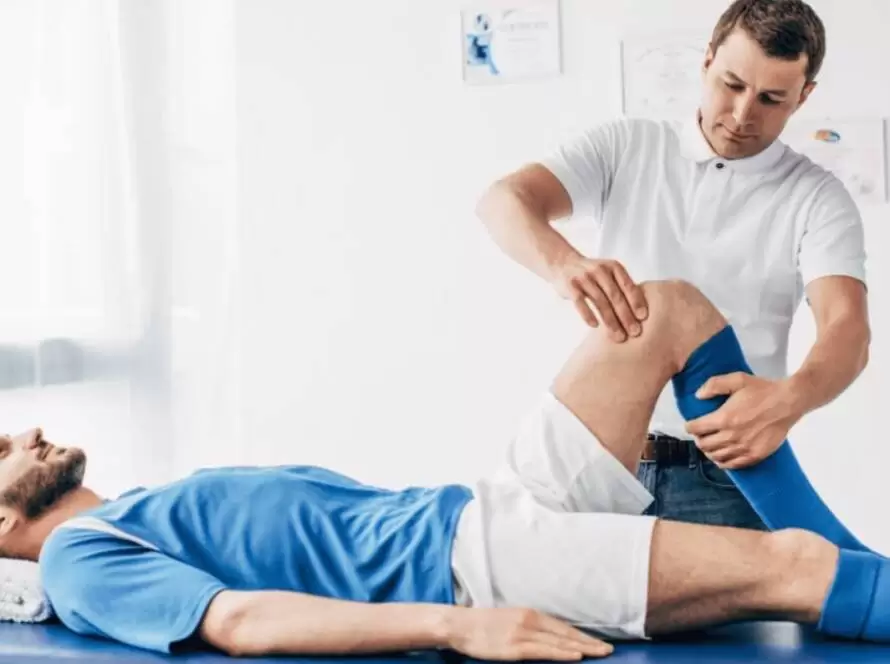Affecting millions of people globally, back discomfort is among the most often occurring health issues. Many people find that ongoing pain greatly affects their everyday activities, which results in limited mobility, difficulties in moving, and lower quality of life. Some patients view surgery as a last resort when conventional therapies including medicine or physical therapy fail to provide relief. But osteopathy is a good substitute for intrusive treatments since it provides a complete non-surgical method of back pain management. This article will go over the ideas underlying osteopathic treatment, how osteopathy could help you avoid back surgery, and its advantages for those with chronic back pain.
Understanding Osteopathy
Emphasizing the connectivity of muscles, joints, and the spine, osteopathy is a type of manual treatment that treats the body as a whole. By means of body rubbing and manipulation, osteopaths diagnose, cure, and prevent a variety of disorders using their hands. Osteopathy’s main objectives are to increase mobility, reduce discomfort, and support the body’s own healing capacity. Osteopathy is very helpful for long-term pain management since it seeks the underlying cause of the issue instead of only treating the symptoms.
Common Reasons of Back Pain
Understanding the typical reasons of back discomfort may help one appreciate how osteopathy might assist. Among the most often occurring causes are:
- Muscle Strains and Sprains: Muscle strains and sprains in the back can result from overuse, moving large objects, or abrupt motions causing pain and discomfort.
- Herniated Discs: The spinal discs cushion the vertebrae from one another. A damaged or slipped-out-of-place disc can push on nerves, leading to sciatica—pain felt down the back or legs.
- Degenerative Disc Disease: Chronic pain results from aging-related loss of flexibility and shock-absorbing capacity of the spinal discs.
- Spinal Stenosis: The disorder known as spinal stenosis results from the narrowing of the spine’s gaps stressing the nerves and generating discomfort.
- Poor Posture: Prolonged sitting, standing, or incorrect posture can strain the back muscles and spine and cause discomfort.
Many times, these factors motivate people to seek medical help; some even think about surgery when more conservative treatments fail. Osteopathy, on the other hand, addresses these problems with manual treatment and non-invasive procedures, therefore providing a good substitute for back surgery.
The Role of Osteopathy in Avoiding Back Surgery
By addressing the underlying causes of pain and enhancing the body’s general functioning, osteopathy can assist to relieve back discomfort and lessen the need for surgery. Osteopathy can help to prevent surgery in the following numerous ways:
Correcting Alignment
Significant pain and suffering can arise from misalignment of the joints or the spine. Gentle manipulation techniques used by osteopaths help to straighten the spine and joints, therefore releasing pressure on nerves and so minimising discomfort. Osteopathy facilitates natural body healing by restoring appropriate alignment, therefore improving posture, balance, and mobility.
Increasing mobility and flexibility
A major objective of osteopathy is to increase joint and muscle range of motion. Osteopathy builds flexibility by means of stretching, massage, and manipulation, therefore enabling patients to move more freely without pain. This more mobility helps to avoid back stiffness and tension from developing, which can frequently cause persistent discomfort or injury.
Improving Blood Flow and Circulation
Osteopathic treatments seek to enhance blood flow and circulation all around the body. Delivering oxygen and nutrients to muscles and tissues depends on proper circulation, therefore supporting the body’s healing process. Osteopathy helps patients heal more easily without surgical intervention by improving blood flow, so reducing inflammation, encouraging tissue repair, and so relieving pain.
Developing Fundamental Muscles
Often a contributing cause to back discomfort are weak core muscles. Working on strengthening the muscles supporting the spine, notably those of the abdomen and lower back, osteopaths By improving general stability and lowering the tension on the spine, strengthening these muscles helps to greatly lower the chance of injury and stop the need for surgery.
Dealing with Chronic Diseases
Osteopathy targets the underlying source of problems, so providing long-term pain relief for those with disorders such degenerative disc degeneration. Using a comprehensive approach, osteopaths consider the whole body to see how various locations might be aggravating the pain. Osteopathy can assist control chronic diseases and stop them from aggravating by correcting these imbalances, therefore lowering the possibility of surgery becoming necessary.
Osteopathy vs. Surgery: A Non-Invasive Approach
Osteopathy presents many benefits over surgery that appeal to those trying to avoid intrusive treatments.
No recovery or downtime Period
Unlike surgery, which sometimes calls for a protracted recuperation, osteopathy requires no downtime. For people with hectic schedules, it is more practical since patients can continue their regular activities soon after treatment.
Reducing Complications Risk
Among the inherent hazards of surgical operations are those related to anaesthesia, blood clots, and infection. For those who might be worried about the possible side effects of surgery, osteopathy is a non-invasive treatment with little hazards.
Reasonably Affordable Treatment
Particularly considering hospital stays, anaesthesia, and post-operative care, surgery can be costly. Given the long-term advantages of avoiding surgery and possible risks, osteopathic treatment is sometimes more reasonably priced.
Whole Healing
Usually, surgery concentrates on correcting a particular problem, including spinal stenosis or a herniated disc. Conversely, osteopathy treats the whole body to advance general health and well-being using a comprehensive approach. Better long-term results and support to stop future back pain episodes can result from this all-encompassing strategy.
The Importance of Early Intervention
Although osteopathy can be quite successful in avoiding surgical need, early intervention is essential. The longer back discomfort lasts, the more probable it is to develop chronic; treatment without surgical intervention may be more difficult. Early on osteopathic therapy can assist prevent back pain from getting worse and lower your chances of future surgical need.
What to Expect During Osteopathic Treatment for Back Pain
Knowing what to expect throughout therapy helps you decide whether osteopathy is a better alternative than surgery. Usually, osteopathic sessions consist of:
Assessment: The osteopath will start his evaluation by carefully reviewing your medical background, way of living, and symptoms. This facilitates the identification of the pain’s underlying cause and creation of a customised treatment plan.
Treatment: treatment may call for a mix of soft tissue massage, joint manipulation, stretching, and light pressure—hands-on methods. These approaches are meant to ease discomfort, increase mobility, and encourage the body’s own healing process.
Follow-up: Osteopathy sometimes calls for several sessions to produce the optimal outcomes. Working with you, your osteopath will track development and modify the treatment plan as necessary. They might also offer activities and lifestyle advice to aid in your recuperation.
Conclusion
Although surgery is not always the only choice even if back pain can be incapacitating. By treating its underlying causes and encouraging the body’s own healing capacity, osteopathy presents a non-invasive, all-encompassing treatment for back pain. Osteopathy can help you avoid back surgery while enhancing your general quality of life whether your problems are with muscles strains, herniated discs, or chronic illnesses like degenerative disc disease.
Without resorting to intrusive treatments, osteopathy offers long-lasting relief from back pain by restoring appropriate alignment, increasing flexibility, improving circulation, and strengthening core muscles. If you suffer with ongoing back discomfort, think about osteopathy as a safe and efficient substitute for operation. Early intervention is crucial; so, prevent the dangers and difficulties connected with back surgery by seeking osteopathic treatment today before the pain becomes intolerable.



